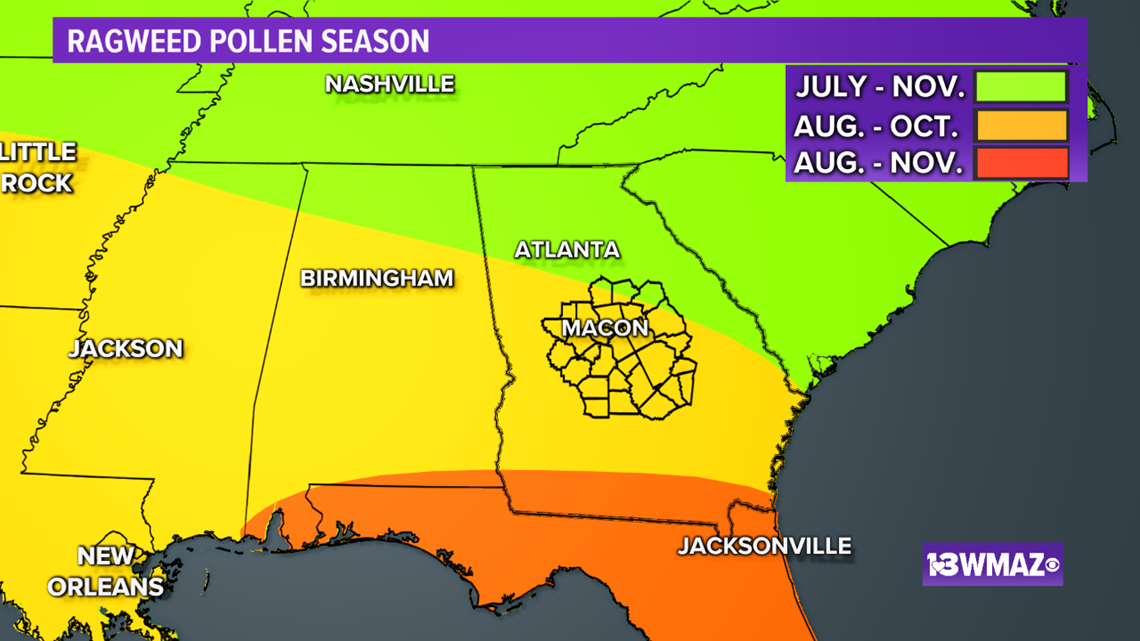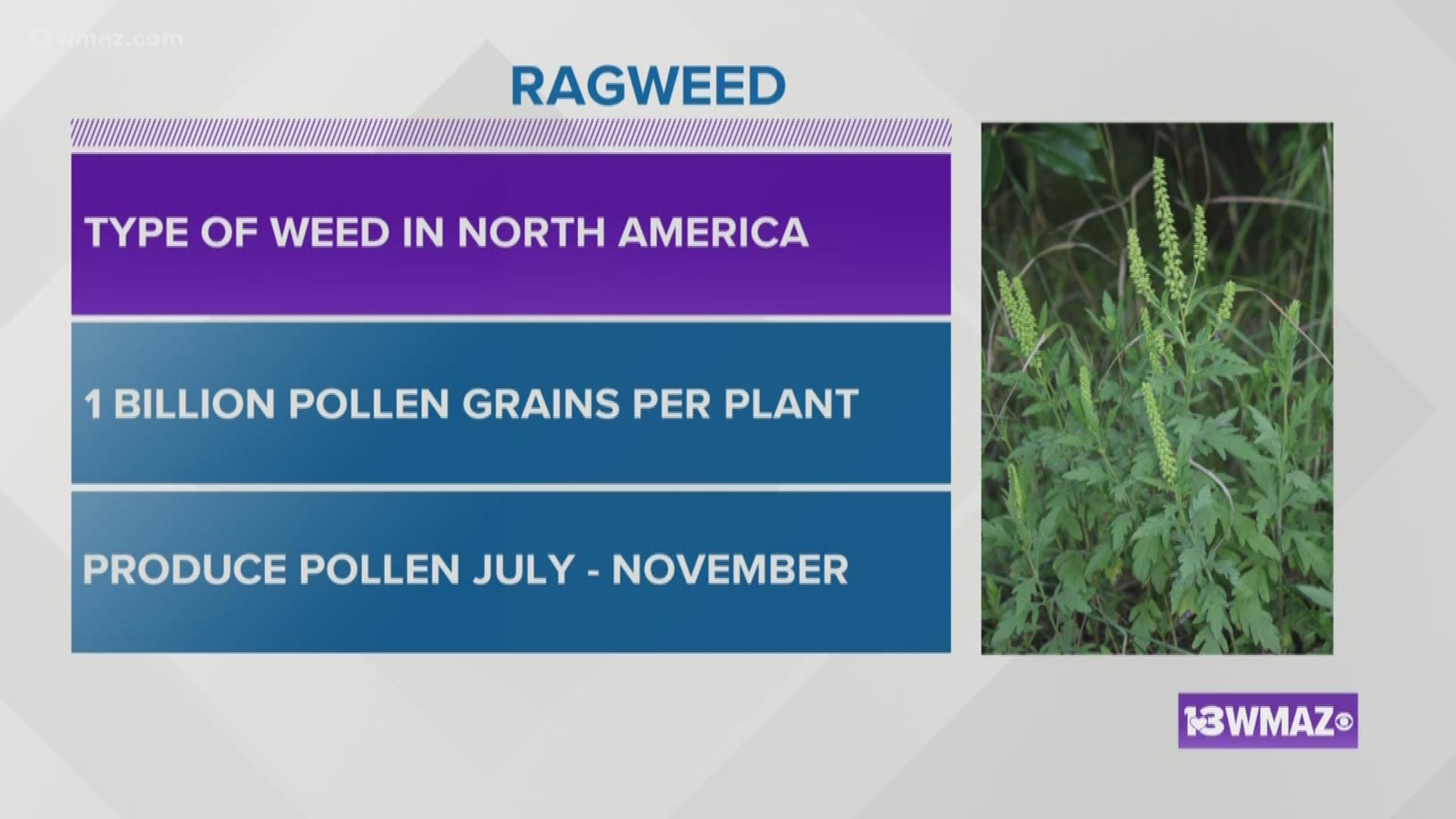MACON, Ga. — Fall is upon us, but it isn't a welcome change of the seasons for everyone. Fall allergy sufferers see their allergies flare up this time of year, and the most likely culprit is ragweed.
Ragweed is a type of weed that is common throughout North America. The plant originated in the southwest but thrives throughout the continent. Pollen season for the weed is quite lengthy. For Central Georgia, we see its pollen August through November.


Just one single ragweed plant will produce 1 billion grains of pollen, and pollen from one plant can travel 300 to 400 miles. With that kind of strength in numbers and range, it is nearly impossible not to come into contact with ragweed pollen sometime each fall.
Folks that have an allergy to pollen experience runny nose, sore throat, itchy eyes, among other symptoms. Allergy sufferers' immune systems see the pollen grains as foreign invaders. As the immune system tries to "fight off" the pollen grains, those allergy symptoms surface.
Allergy sufferers can avoid ragweed pollen by planning activities earlier in the day. Pollen concentrations are always lowest in the morning.
Other suggestions for limiting allergies include frequently washing hands, leaving shoes outside, staying inside as much as possible, keeping windows closed, and showering before bed.
As we get deeper into fall and ultimately winter, Ragweed season will come to a close. However, the break from allergens won't last long. Spring allergy season will be soon to follow.
STAY ALERT | Download our FREE app now to receive breaking news and weather alerts. You can find the app on the Apple Store and Google Play.
STAY UPDATED | Click here to subscribe to our Midday Minute newsletter and receive the latest headlines and information in your inbox every day.
Have a news tip? Email news@13wmaz.com, or visit our Facebook page.

